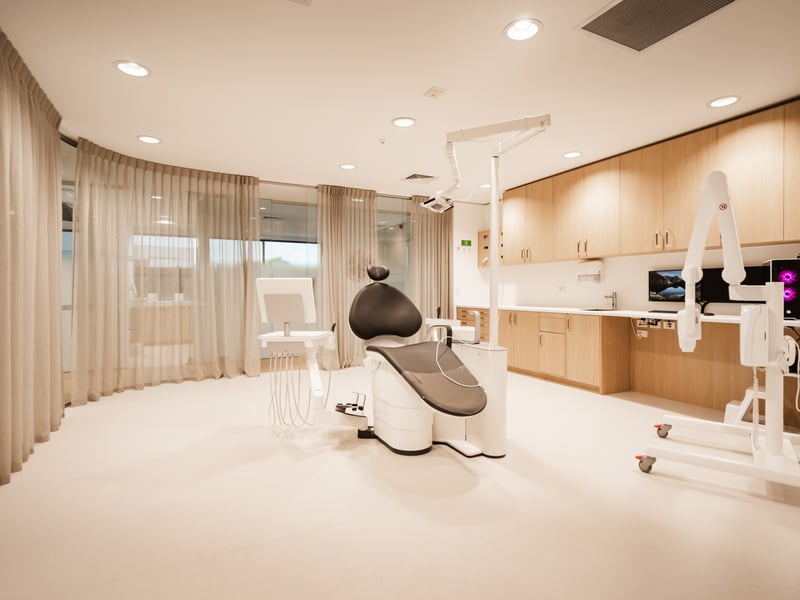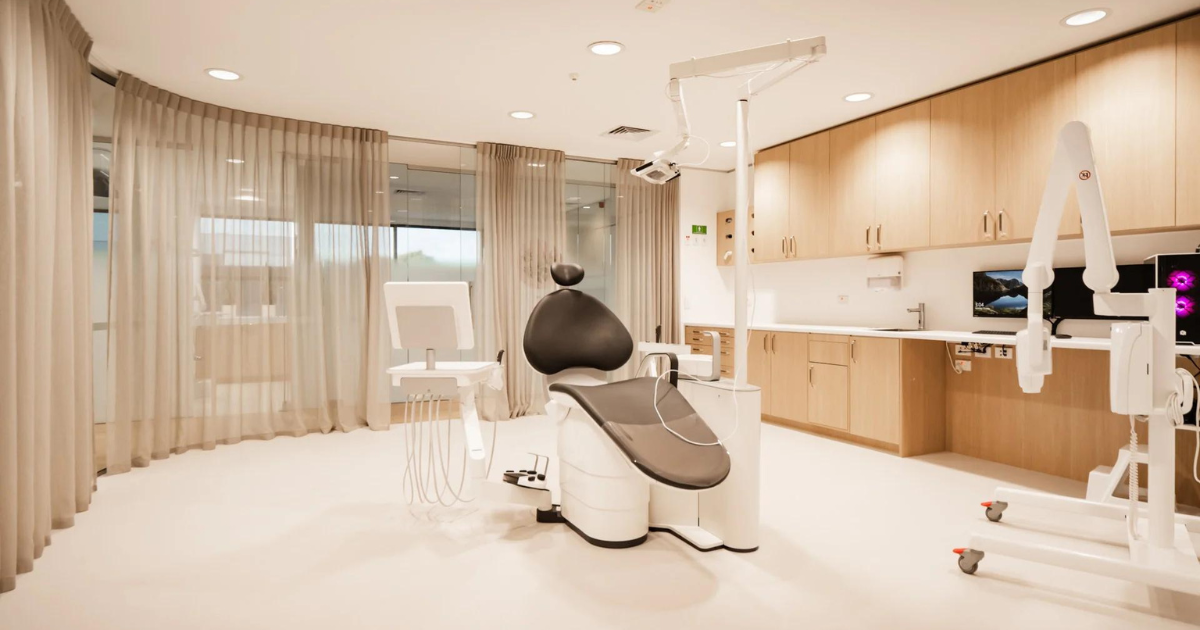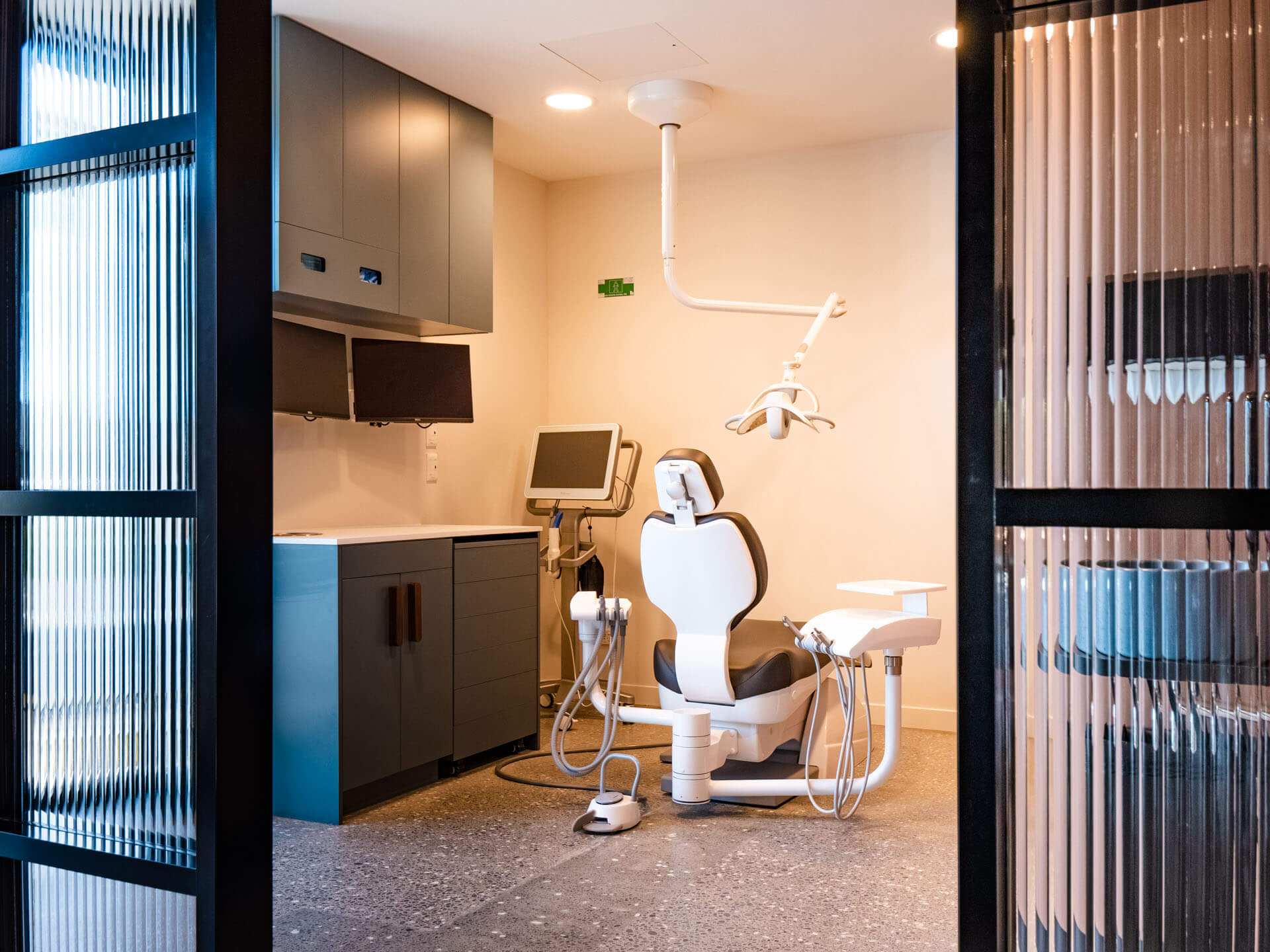Thinking of buying a dental clinic? Here's what you need to know
When it comes to starting a dental practice, many dentists consider buying an existing clinic as an alternative to starting from scratch. However, buying a clinic is a significant investment that requires careful consideration.
To help you make an informed decision, we have broken this article into two parts:
- Top 10 considerations for buying an existing dental practice.
- Buying an existing practice vs starting your own.

Considerations for buying a dental practice
Buying an existing dental practice has many advantages, but also many more considerations. While the allure of trained staff, established premises, and an existing customer base is very appealing, you may also be inheriting a range of problems to go along with it. If this is a path you’re considering, here are a few things to consider.
1. Location
First and foremost, you must ensure that the location of your prospective clinic is well-situated for your patients' convenience. A clinic in a busy area with a lot of foot traffic and high visibility is more likely to attract new patients. Additionally, accessibility and ample parking will make it easier for your patients to visit. It may be worth paying a bit more for a clinic that has an excellent location.
2. Capacity
When assessing a clinic, take into account the size and flexibility of the current building. This will determine how many patients you can serve effectively and could limit your future growth. For example, if the waiting area or staff room is bigger than you require, you may wish to convert it into another surgery.
This can be one of the main areas where increased capability can be realised quickly. An old, or poorly considered clinic could increase patient capacity, and therefore revenue, with a small investment in the layout. When considering a potential purchase have a thought as to whether improvements could be made to realise untapped potential.
3. Layout
The layout will also play a major role in your decision because it determines your service capacity, treatment options, efficiencies, and ergonomics. A functional practice requires a reception area, administrative office, surgery rooms, a sterilisation room, a lab, a staff room, and wheelchair accessibility.
Consider how people will utilise each of these spaces and how they will move between them. If there is a more suitable layout, you need to decide if the renovations are worth the investment.
You could make a big statement about the new management of a dental practice by making changes to the layout, fitout, and design of the premises. Staff could be made happier with improvements to the back office locations, especially the staff room, and patients could be impressed by a fresh outlook.
4. Condition
Unfortunately, many existing dental clinics are outdated and in need of a refresh. In some cases, updates will include minor aesthetic changes, while in others, the equipment and layout may require a complete overhaul. If you are uncertain about the feasibility of a clinic renovation, speak to the experienced team at Dentec. We have worked on a range of old and new buildings and know how to avoid all the common pitfalls.
This external appraisal could help you assess the value of the potential purchase and the investment you’d need to make in bringing it up to spec.
5. Current patient base
Typically, it is easier and more profitable to begin your clinic ownership with an existing client base than to start from nothing. However, you must evaluate the demographics and service requirements to ensure it is a suitable fit for you in the long term. If you specialise in a particular service, like cosmetic dentistry or orthodontics, assess how frequently it has been requested in the past. It is also worth noting if any local competitors offer the same services.
6. Equipment and technology
When buying a dental surgery, consider the age and condition of the equipment. This includes whether it is compliant with current regulations and if you will need to replace any of the current tools. Additionally, if the clinic has not implemented electronic health records and digital radiography, you will need to incorporate these into your processes.
7. Financial
Before investing in a clinic, carefully review its financial records to determine its profitability. Look at the clinic's income statement and balance sheet to determine its revenue, expenses, and profitability. Are there existing bad debt or loan repayments that you’ll be taking on? You’ll also need to think about the clinic's cash flow to ensure that it has enough funds to cover ongoing expenses.
8. Staff
The staff of a dental practice play a critical role in patient satisfaction. For long-term profitability, you must ensure the skills, experience, and qualifications of the current staff are compatible with your goals. A change of ownership may lead employees to leave the clinic so be sure to determine their willingness to stay early on.
You may need to retrain some of the staff to help them adjust to any new processes or procedures you plan to implement. This may scare some team members but may also excite others as a chance to progress in their careers. Ensure change management is implemented and that communication on what’s expected of staff is clear.
9. Legal and compliance obligations
Buying an established dental practice means taking on the legal and compliance responsibilities of the previous owner. For a smooth transition, make sure you are aware of all the official requirements for dental clinics in New Zealand, including:
If you’re buying a practice from overseas and are unfamiliar with New Zealand’s workplace legislation, it is recommended that you hire a lawyer familiar with these requirements. Paying for a consultation or familiarisation session can help to bring you up to speed, especially as New Zealand’s employment law is very employee-focused when compared to the laws of several other countries.
10. Type of practice
There are three types of practices: insurance-based, fee-for-service, and blended. This will determine how the clientele pays for dental services, and therefore how the practice functions.
Insurance-driven practices: Some practices rely on insurance companies to pay for treatments. This means you must comply with the insurance company's criteria to generate your primary source of revenue.
Fee-for-service practices: The dentist charges a certain fee for each service provided and the patient pays for it directly. This type of practice typically provides more flexibility in terms of treatment options and does not have to comply with insurance company regulations.
Blended practices: A blended practice is a combination of an insurance-driven and fee-for-service practice. For some treatments, insurance will cover the service, while for others, the patient will pay out-of-pocket. This generates more revenue streams and a diversified patient base.
Make sure you’re familiar with the different types and that these suit your preferences for running a business.
Buying vs building a new practice
To set up a dental practice, you have two options – buying an existing practice or building a new one. In this section, we take a look at the advantages and disadvantages of each.
Pros and cons of buying an existing dental practice
Buying an existing practice involves finding a suitable practice for sale, conducting due diligence, negotiating a purchase price, and closing the deal. From there, you may also need to invest in renovations.
Pros
- An established client base.
- Immediate revenue.
- An established reputation in the community.
- Financial stability.
- Experienced staff.
Cons
- Potential for existing debt.
- Outdated equipment.
- Risk of losing current patients.
- Potential for staff dissatisfaction or turnover.
- Compliance with the previous owner's lease or purchase agreements.
- Limited autonomy over practice management and decision-making.
Pros and cons of starting a new dental practice
Starting from the ground up involves finding a location, designing and building the fitout, and obtaining the necessary permits. When the fitout is complete, you will also need to recruit staff, patients, and suppliers.
Pros
- Autonomy over practice management.
- A fresh brand and reputation.
- Long-term growth.
- New equipment.
- Opportunity to build a loyal patient base.
- Easy compliance process.
Cons
- Higher startup costs.
- Risk of not attracting enough patients.
- Need to gain the trust of patients.
- Need to find the right staff.
- No immediate revenue.
Dental fitouts in New Zealand
At Dentec, we specialise in dental fitouts, providing expert design and installation services tailored to the unique needs of each clinic. Our services include:
- Comprehensive design consultations.
- Interior design.
- Budget projections.
- Feasibility analysis.
- Project management.
- Installation.
- Equipment upgrades and replacement.
- Financial support.
We are dedicated to creating efficient, engaging, and forward-thinking dental environments for both practitioners and patients. Whether you need to renovate an existing clinic, replace outdated equipment, or create a brand-new fitout, we can help. You can trust our expert team to bring your vision to life quickly and seamlessly.


.png)